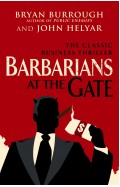- Home
- Books
- Categories
- Non Fiction
- Pirate Enlightenment - Buccaneers, Women Traders and Mock Kingdoms in Eighteenth Century Madagascar
Pirate Enlightenment - Buccaneers, Women Traders and Mock Kingdoms in Eighteenth Century Madagascar
By: David Graeber
-
Rs 3,146.25
- Rs 4,195.00
- 25%
You save Rs 1,048.75.
Due to constant currency fluctuation, prices are subject to change with or without notice.
The Enlightenment did not begin in Europe. Its true origins lie thousands of miles away on the island of Madagascar, in the late seventeenth century, when it was home to several thousand pirates. This was the Golden Age of Piracy, a period of violent buccaneering and rollicking legends - but it was also, argues anthropologist David Graeber, a brief window of radical democracy, as the pirate settlers attempted to apply the egalitarian principles of their ships to a new society on land.
For Graeber, Madagascar's lost pirate utopia represents some of the first stirrings of Enlightenment political thought. In this jewel of a book, he offers a way to 'decolonize the Enlightenment', demonstrating how this mixed community experimented with an alternative vision of human freedom, far from that being formulated in the salons and coffee houses of Europe. Its actors were Malagasy women, merchants and traders, philosopher kings and escaped slaves, exploring ideas that were ultimately to be put into practice by Western revolutionary regimes a century later.
Pirate Enlightenment playfully dismantles the central myths of the Enlightenment. In their place comes a story about the magic, sea battles, purloined princesses, manhunts, make-believe kingdoms, fraudulent ambassadors, spies, jewel thieves, poisoners and devil worship that lie at the origins of modern freedom.
The Enlightenment did not begin in Europe. Its true origins lie thousands of miles away on the island of Madagascar, in the late seventeenth century, when it was home to several thousand pirates. This was the Golden Age of Piracy, a period of violent buccaneering and rollicking legends - but it was also, argues anthropologist David Graeber, a brief window of radical democracy, as the pirate settlers attempted to apply the egalitarian principles of their ships to a new society on land.
For Graeber, Madagascar's lost pirate utopia represents some of the first stirrings of Enlightenment political thought. In this jewel of a book, he offers a way to 'decolonize the Enlightenment', demonstrating how this mixed community experimented with an alternative vision of human freedom, far from that being formulated in the salons and coffee houses of Europe. Its actors were Malagasy women, merchants and traders, philosopher kings and escaped slaves, exploring ideas that were ultimately to be put into practice by Western revolutionary regimes a century later.
Pirate Enlightenment playfully dismantles the central myths of the Enlightenment. In their place comes a story about the magic, sea battles, purloined princesses, manhunts, make-believe kingdoms, fraudulent ambassadors, spies, jewel thieves, poisoners and devil worship that lie at the origins of modern freedom.
The Dawn of Everything: A New History of Humanity
By: David Graeber
Rs 2,996.25 Rs 3,995.00 Ex Tax :Rs 2,996.25
Pirate Enlightenment - Buccaneers, Women Traders and Mock Kingdoms in Eighteenth Century Madagascar
By: David Graeber
Rs 3,146.25 Rs 4,195.00 Ex Tax :Rs 3,146.25
Pirate Enlightenment, Or the Real Libertalia
By: David Graeber
Rs 2,515.50 Rs 2,795.00 Ex Tax :Rs 2,515.50
The Ultimate Hidden Truth of the World
By: David Graeber
Rs 5,665.50 Rs 6,295.00 Ex Tax :Rs 5,665.50
Zubin Mehta: A Musical Journey (An Authorized Biography)
By: VOID - Bakhtiar K. Dadabhoy
Rs 472.50 Rs 1,050.00 Ex Tax :Rs 472.50
Barbarians at the Gate - The Fall of RJR Nabisco
By: Bryan Burrough
Rs 2,515.50 Rs 2,795.00 Ex Tax :Rs 2,515.50
Maradona: The Boy. the Rebel. the God
By: Guillem Balague
Rs 1,231.75 Rs 1,895.00 Ex Tax :Rs 1,231.75
The Origins of Political Order From Prehuman Times to the French RevolutioN
By: Francis Fukuyama
Rs 3,505.50 Rs 3,895.00 Ex Tax :Rs 3,505.50
Manning Up: How the Rise of Women Has Turned Men into Boys
By: Kay Hymowitz
Rs 646.75 Rs 995.00 Ex Tax :Rs 646.75
The Obama Syndrome: Surrender At Home War Abroad
By: Tariq Ali
Rs 1,165.50 Rs 1,295.00 Ex Tax :Rs 1,165.50
The Quest For Meaning: Developing A Philosophy Of Pluralism
By: Tariq Ramadan
Rs 1,255.50 Rs 1,395.00 Ex Tax :Rs 1,255.50
The Pakistan US Conundrum Jihadists The Military And The People The Struggle For Control
By: Yunas Samad
Rs 1,255.50 Rs 1,395.00 Ex Tax :Rs 1,255.50
An Enemy We Created: The Myth Of The Taliban Al Qaeda Merger In Afghanistan 19702010
By: Alex Strick van Linschoten
Rs 3,412.50 Rs 5,250.00 Ex Tax :Rs 3,412.50
WikiLeaks: Inside Julian Assanges War on Secrecy
By: David Leigh & Luke Harding
Rs 552.50 Rs 850.00 Ex Tax :Rs 552.50
Barbarians at the Gate - The Fall of RJR Nabisco
By: Bryan Burrough
Rs 2,515.50 Rs 2,795.00 Ex Tax :Rs 2,515.50
Maradona: The Boy. the Rebel. the God
By: Guillem Balague
Rs 1,231.75 Rs 1,895.00 Ex Tax :Rs 1,231.75
No recently viewed books available at the moment.
Zubin Mehta: A Musical Journey (An Authorized Biography)
By: VOID - Bakhtiar K. Dadabhoy
Rs 472.50 Rs 1,050.00 Ex Tax :Rs 472.50
The Dawn of Everything: A New History of Humanity
By: David Graeber
Rs 2,996.25 Rs 3,995.00 Ex Tax :Rs 2,996.25
Pirate Enlightenment - Buccaneers, Women Traders and Mock Kingdoms in Eighteenth Century Madagascar
By: David Graeber
Rs 3,146.25 Rs 4,195.00 Ex Tax :Rs 3,146.25
Pirate Enlightenment, Or the Real Libertalia
By: David Graeber
Rs 2,515.50 Rs 2,795.00 Ex Tax :Rs 2,515.50
The Ultimate Hidden Truth of the World
By: David Graeber
Rs 5,665.50 Rs 6,295.00 Ex Tax :Rs 5,665.50
Barbarians at the Gate - The Fall of RJR Nabisco
By: Bryan Burrough
Rs 2,515.50 Rs 2,795.00 Ex Tax :Rs 2,515.50
Maradona: The Boy. the Rebel. the God
By: Guillem Balague
Rs 1,231.75 Rs 1,895.00 Ex Tax :Rs 1,231.75




















-120x187.jpg?q6)









-120x187.jpg?q6)



-120x187.jpg?q6)



